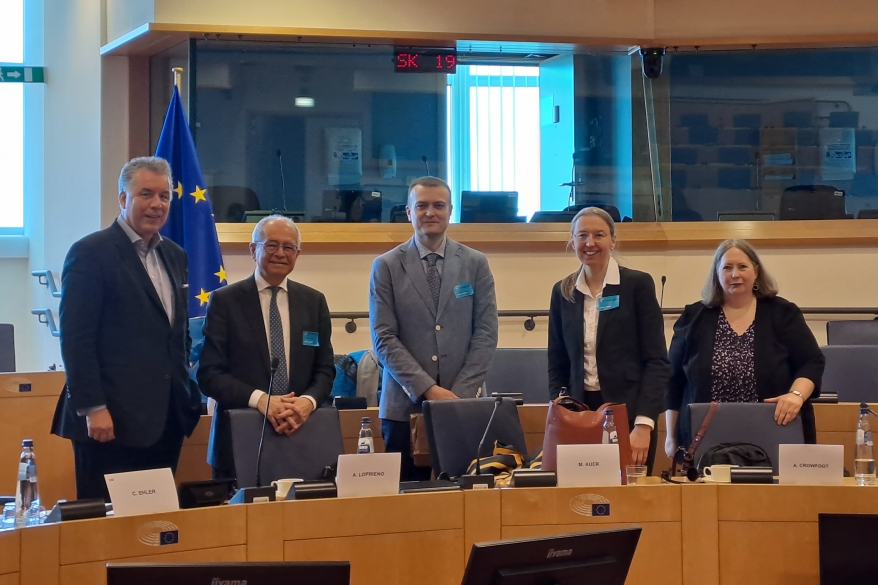On April 27th, Eurodoc President Oleksandr Berezko participated in the STOA Academic Freedom Roundtable ‘Freedom of scientific research’ in the European Parliament building in Brussels. At the event organised and led by Dr. Christian Ehler, MEP and STOA Chair, panelists representing several key European stakeholders in the field of science and education discussed the perspectives of legal protection for the freedom of scientific research at the European level.
The European Parliament's STOA Panel for the Future of Science and Technology is aimed at providing Parliament's Committees and other policymakers with independent, high-quality, and scientifically impartial information about developments in science and technology (S&T), the opportunities they offer, but also the risks they entail and their ethical implications. STOA organises forums in which politicians and representatives of academia and other stakeholders discuss and compare scientific and technological developments of political relevance to civil society.
STOA established a platform 'EP Forum for Academic Freedom' that offers a place for stakeholders to discuss how to protect academic freedom in Europe. As part of this initiative, the first STOA Academic Freedom Roundtable was organised with the aim to have an exchange with the main representatives of the European research community on the freedom of scientific research. The STOA leadership understands that academic freedom while being a driver of innovation and catalyst of knowledge acquisition and generation, remains poorly understood and is under attack in many places, including Europe.
We highly recommend watching the recorded roundtable on the EP Multimedia Center page. Here are some highlights from the panelists selected by us.
“Academic freedom is very difficult to legislate on because it is a moving target. (...) Academic freedom in the digital age cannot be considered along the same paradigm as in the analog age.” - Prof. Antonio Loprieno, ALLEA President.
“Everybody knows, that scientific freedom is on retreat worldwide (...) There could be a minimum standard regarding scientific research in the EU and the Bonn declaration might be a starting point to establish some legislation.” - Prof. Marietta Auer, Vice President of German Research Foundation, DFG.
“It is problematic from the holistic view and from the way universities work, to separate research and education in the discussion on academic freedom. (...) I ask you to continue the dialogue with universities to ensure that there are no unintended consequences in the legal protection of academic freedom” - Ms. Amanda Crowfoot, EUA Secretary General.
“If you have a look at the paper that was published today, you will see that we make a distinction between three elements is we speak about academic freedom: the individual right, the institutional right, and the state obligation.” - Prof. Kurt Deketelaere, LERU Secretary-General.
“It is important to recognise that terrible Russia’s invasion is not a war solely on Ukraine, but it is an attack on democracy and academic freedom. (...) Any regulations on academic freedom must be as inclusive as possible. (...) Every right comes with a responsibility to adhere to good academic standards and research ethics. (...) We definitely need more research on research.” - Dr. Oleksandr Berezko, Eurodoc President.
Eurodoc thanks Dr. Ehler and the STOA team for the opportunity to participate in the discussion and looks forward to furthering and extending it as the issue will most likely be of increased relevance in the years to come. More information regarding Eurodoc's position on academic freedom can be found in our recent statement.

